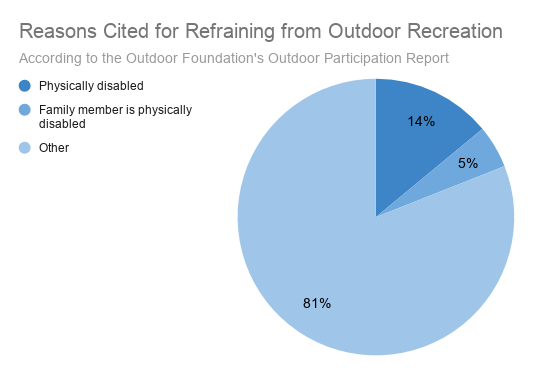What is the problem?
National and State parks are meant to be enjoyed and explored by anyone and everyone, regardless of physical ability. According to the U.S. Department of Justice’s Americans with Disabilities Act Title III Regulations, parks and forests that receive federal funding must be accessible to all Americans, regardless of their physical mobility and ability. However, according to the National Park Service’s accessibility statement, most national parks across the United States are far from completely accessible to the physically handicapped. This is in part due to a lack of funding, education of park workers, and external resources.
This is a pressing issue to Americans of all levels of ability and the discrepancy in accessibility in these parks can no longer go overlooked in our country. National and state parks and forests must be improved and added to, and the change begins here, by raising awareness and making known the need for action.
By the numbers

- In the Outdoor Foundation’s 2018 Outdoor Participation Report, 19% of survey respondents who reported that they do not spend time outdoors recreationally cited physical disability as the reason

- Physical disability was the 5th most common reason cited for not spending time outdoors

- The top 3 reasons physically disabled survey respondents in the 2004 Journal of Parks and Recreation Administration’s survey cited for refraining from outdoor recreation
Why is this important?
This is important because the outdoors should be accessible to everyone without any worries. People who are physically handicapped shouldn’t feel uneasy about the outdoors but instead welcomed. If parks and other recreational services are able to create a safe and stress free environment for everyone, then maybe people will finally realize how beautiful and calming the outdoors really are.
Fewer and fewer people each year participate in recreational activity due to societal norms and the new age of technology. This number will continue to decrease if we don’t start to spread awareness and offer new ways for people to experience the outdoors including groups like the physically handicapped.